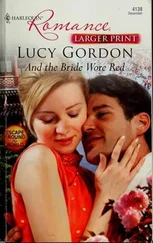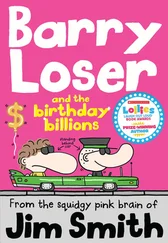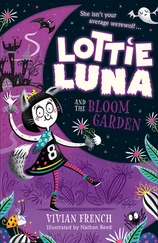Frank Norris - Vandover and the Brute
Здесь есть возможность читать онлайн «Frank Norris - Vandover and the Brute» — ознакомительный отрывок электронной книги совершенно бесплатно, а после прочтения отрывка купить полную версию. В некоторых случаях можно слушать аудио, скачать через торрент в формате fb2 и присутствует краткое содержание. Жанр: foreign_prose, literature_19, foreign_antique, на английском языке. Описание произведения, (предисловие) а так же отзывы посетителей доступны на портале библиотеки ЛибКат.
- Название:Vandover and the Brute
- Автор:
- Жанр:
- Год:неизвестен
- ISBN:нет данных
- Рейтинг книги:4 / 5. Голосов: 1
-
Избранное:Добавить в избранное
- Отзывы:
-
Ваша оценка:
- 80
- 1
- 2
- 3
- 4
- 5
Vandover and the Brute: краткое содержание, описание и аннотация
Предлагаем к чтению аннотацию, описание, краткое содержание или предисловие (зависит от того, что написал сам автор книги «Vandover and the Brute»). Если вы не нашли необходимую информацию о книге — напишите в комментариях, мы постараемся отыскать её.
Vandover and the Brute — читать онлайн ознакомительный отрывок
Ниже представлен текст книги, разбитый по страницам. Система сохранения места последней прочитанной страницы, позволяет с удобством читать онлайн бесплатно книгу «Vandover and the Brute», без необходимости каждый раз заново искать на чём Вы остановились. Поставьте закладку, и сможете в любой момент перейти на страницу, на которой закончили чтение.
Интервал:
Закладка:
Mrs. Ravis had peered out through the curtains of the parlour window to see who it was, and Turner met her and Mr. Ravis coming upstairs, abandoning the parlour to Turner's caller.
"Mamma and I are going upstairs to read," explained Mr. Ravis. "It's some one of your young men. You can bring him right in the parlour."
"I think it's Mr. Haight," said Turner's mother. "Ask him to stay to tea."
"Well," said Turner doubtfully, as she paused at the foot of the stairs, "I will, but you know we never have anything to speak of for Sunday evening tea. June is out, and you know how clumsy and stupid Delphine is when she waits on the table."
It was young Haight. Turner was very glad to see him, for next to Vandover she liked him better than any of the others. She was never bored by being obliged to entertain him, and he always had something to say and some clever way of saying it.
About half-past five, as they were talking about amateur photography, Mrs. Ravis came in and called them to tea.
Tea with the Ravises was the old-fashioned tea of twenty years ago. One never saw any of the modern "delicacies" on their Sunday evening table, no enticing cold lunch, no spices, not even catsups or pepper sauces. The turkey or chicken they had had for dinner was served cold in slices; there was canned fruit, preserves, tea, crackers, bread and butter, a large dish of cold pork and beans, and a huge glass pitcher of ice-water.
In the absence of June, Delphine the cook went through the agony of waiting on the table, very nervous and embarrassed in her clean calico gown and starched apron. Her hands were red and knotty, smelling of soap, and they touched the chinaware with an over-zealous and constraining tenderness as if the plates and dishes had been delicate glass butterflies. She stood off at a distance from the table making sudden and awkward dabs at it. When it came to passing the plates, she passed them on the wrong side and remembered herself at the wrong moment with a stammering apology. In her excess of politeness she kept up a constant murmur as she attended to their wants. Another fork? Yes, sir. She'd get it right away, sir. Did Mrs. Ravis want another cuppa tea? No? No more tea? Well, she'd pass the bread. Some bread, Master Howard? Nice French bread, he always liked that. Some more preserved pears, Miss Ravis? Yes, miss, she'd get them right away; they were just over here on the sideboard. Yes, here they were. No more? Now she'd go and put them back. And at last when she had set the nerves of all of them in a jangle, was dismissed to the kitchen and retired with a gasp of unspeakable relief.
Somewhat later in the evening young Haight was alone with Turner, and their conversation had taken a very unusual and personal turn. All at once Turner exclaimed:
"I often wonder what good I am in the world to anybody. I don't know a thing, I can't do a thing. I couldn't cook the plainest kind of a meal to save me, and it took me all of two hours yesterday to do just a little buttonhole stitching. I'm not good for anything. I'm not a help to anybody."
Young Haight looked into the blue flame of the gas-log, almost the only modern innovation throughout the entire house, and was silent for a moment; then he leaned his elbows on his knees and, still looking at the flame, replied:
"I don't know about that. You have been a considerable help to me ."
"To you !" exclaimed Turner, surprised. "A help to you ? Why, how do you mean?"
"Well," he answered, still without looking at her, "one always has one's influence, you know."
"Ah, lots of influence I have over anybody," retorted Turner, incredulously.
"Yes, you have," he insisted. "You have plenty of influence over the people that care for you. You have plenty of influence over me."
Turner, very much embarrassed, and not knowing how to answer, bent down to the side of the mantelpiece and turned up the flame of the gas-log a little. Young Haight continued, almost as embarrassed as she:
"I suppose I'm a bad lot, perhaps a little worse than most others, but I think—I hope—there's some good in me. I know all this sounds absurd and affected, but really I'm not posing; you won't mind if I speak just as I think, for this once. I promise," he went on with a half smile, "not to do it again. You know my mother died when I was little and I have lived mostly with men. You have been to me what the society of women has been to other fellows. You see, you are the only girl I ever knew very well—the only one I ever wanted to know. I have cared for you the way other men have cared for the different women that come into their lives; as they have cared for their mothers, their sisters—and their wives. You have already influenced me as a mother or sister should have done; what if I should ever ask you to be—to be the other to me, the one that's best of all?"
Young Haight turned toward her as he finished and looked at her for the first time. Turner was still very much embarrassed.
"Oh, I'm very glad if I've been a help to—to anybody—to you," she said, confusedly. "But I never knew that you cared—that you thought about me—in that way. But you mustn't, you know, you mustn't care for me in that way. I ought to tell you right away that I never could care for you more than—I always have done; I mean care for you only as a very, very good friend. You don't know, Dolly," she went on eagerly, "how it hurts me to tell you so, because I care so much for you in every other way that I wouldn't hurt your feelings for anything; but then you know at the same time it would hurt you a great deal more if I shouldn't tell you, but encourage you, and let you go on thinking that perhaps I liked you more than any one else, when I didn't . Now wouldn't that be wrong? You don't know how glad it makes me feel that I have been of some good to you, and that is just why I want to be sincere now and not make you think any less of me—think any worse of me."
"Oh, I know," answered young Haight. "I know I shouldn't have said anything about it. I knew beforehand, or thought I knew, that you didn't care in that way."
"Maybe I have been wrong," she replied, "in not seeing that you cared so much, and have given you a wrong impression. I thought you knew how it was all the time."
"Knew how what was?" he asked, looking up.
"Why," she said, "knew how Van and I were."
"I knew that Van cared for you a great deal."
"Yes, but you know," she went on, hesitating and confused, "you know we are engaged. We have been engaged for nearly two years."
"But he don't consider himself as engaged!" The words were almost out of Haight's mouth, but he shut his teeth against them and kept silence—he hardly knew why.
"Suppose Vandover were out of the question," he said, getting up and smiling in order not to seem as serious as he really was.
"Ah," she said, smiling back at him. "I don't know; that's a hard question to answer. I've never asked myself that question."
"Well, I'm saving you the trouble, you see," he answered, still smiling. "I am asking it for you."
"But I don't want to answer such a question off-hand like that; how can I tell? It would only be perhaps , just now."
Young Haight answered quickly that "just now" he would be contented with that "perhaps"; but Turner did not hear this. She had spoken at the same time as he, exclaiming, "But what is the good of talking of that? Because no matter what happened I feel as though I could not break my promise to Van, even if I should want to. Because I have talked like this, Dolly," she went on more seriously, "you must not be deceived or get a wrong impression. You understand how things are, don't you?"
Читать дальшеИнтервал:
Закладка:
Похожие книги на «Vandover and the Brute»
Представляем Вашему вниманию похожие книги на «Vandover and the Brute» списком для выбора. Мы отобрали схожую по названию и смыслу литературу в надежде предоставить читателям больше вариантов отыскать новые, интересные, ещё непрочитанные произведения.
Обсуждение, отзывы о книге «Vandover and the Brute» и просто собственные мнения читателей. Оставьте ваши комментарии, напишите, что Вы думаете о произведении, его смысле или главных героях. Укажите что конкретно понравилось, а что нет, и почему Вы так считаете.












